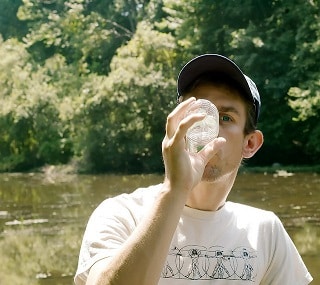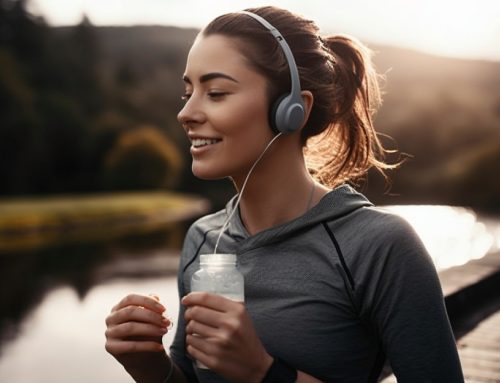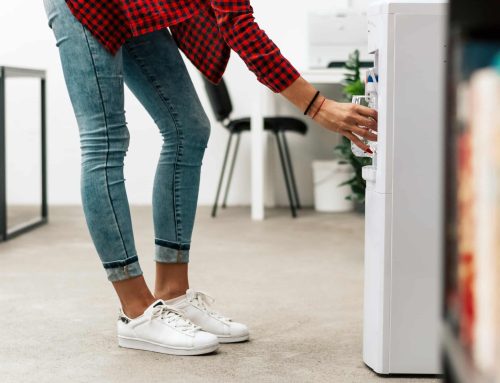
Fortunately in the UK there is not shortage of drinking water, be it tap water, which is of a consistently high standard, bottled water or water dispensed from a water cooler. This does not mean that there are not still many individuals in the UK who do not drink enough water to prevent dehydration.
One of the problems is that many individuals do not know what the signs of dehydration are; they do not know the various stages of dehydration either, and therefore do not know when it is necessary to seek medical help.
The Different Stages of Dehydration
Dehydration occurs when an individual loses more liquid than they are taking in. This loss takes place via sweating, crying, breathing, and urination. The amount of water that is lost varies from individual to individual, which is why modern beliefs do not agree with the 8×8 rule of fluid intake.
Dehydration causes the body to lose body-weight, as the human body is around two-thirds water. When this happens, the body cannot function optimally and this can affect your health very badly.
There are essentially 3 stages of dehydration:
- Mild Dehydration– you lose 3% to 5% of your body weight
- Moderate Dehydration – you lose 6% to 9% of your body weight
- Severe Dehydration– you lose 10% or more of your body weight
It is important to recognise the different stages of dehydration in order to take the appropriate steps to drink water to rehydrate the body.
Mild Dehydration
Mild dehydration can occur because of normal sweating on a hot day or excess urination, and this can cause one to feel a bit thirsty and dry-mouthed. Your lips and nose may also feel a bit dry. Check your urine at this stage; if it is a dark yellow or amber, you need to drink water to rehydrate.
At this stage, the thirst that you are feeling is your brain telling you that you need to drink water. Ignore this warning at your peril, as things will only get worse if you do.
Moderate Dehydration
Moderate dehydration can result in abnormalities in the body’s potassium and sodium levels, which could affect the rhythm of your heartbeat, as the heart needs to work more to pump blood and oxygen throughout your body.
The symptoms of moderate dehydration include:
- Dry mouth, lips and nose
- Extreme thirst
- Decreased urine output
- Deep, rapid breathing
- Headaches
- Dry skin
- Dizziness and feeling light-headed
- Fatigue and lethargy
- Low blood pressure
- Confusion
- Constipation
- Muscles cramping
- A rapid, weak pulse of 100bpm at rest
- A drop in body-temperature, especially in the extremities
- Blue lips
- Painful kidneys
Drinking water or other fluids such as electrolyte drinks at regular intervals should resolve your hydration problems. Monitor the colour of your urine and do not stop hydrating until your urine is clear or light-coloured
Severe Dehydration
Severe dehydration is serious and requires medical intervention to prevent damage to your kidneys or liver. Severe dehydration can also cause kidney stones to form and can damage muscle and create cholesterol problems.
Just drinking water will not help at this stage as it has gone beyond the point where you can rehydrate without medical help.
Seek medical advice immediately if you exhibit any of the following symptoms:
- Severe diarrhoea
- Inability to produce tears
- Vomiting or a fever
- Bloody or black stool
- Moderate diarrhoea for more than 24 hours
- Inability to keep down fluids
- Irritability
- Feeling disoriented
- Sunken, dry eyes
- A weak pulse
- Fits (seizures)
- Low blood pressure (hypotension)
- Dry skin that sags slowly into position when pinched up
- Inability to pass urine for eight hours
- A low level of consciousness
Sever dehydration normally requires hospitalisation and a drip to restore fluids. If not attended to immediately it can lead to various complications, including death.
The best way to avoid becoming dehydrated is to invest in a water cooler from which you can drink water throughout the day. Get bottled water coolers and mains water coolers for your office or business.
Sources:





